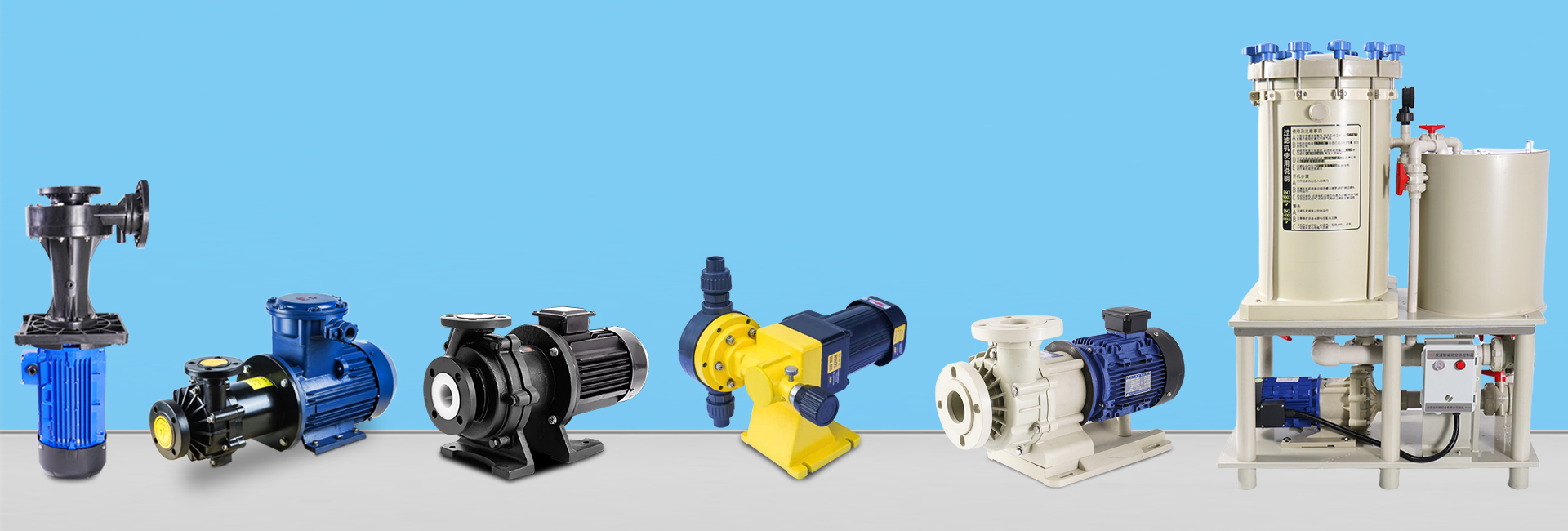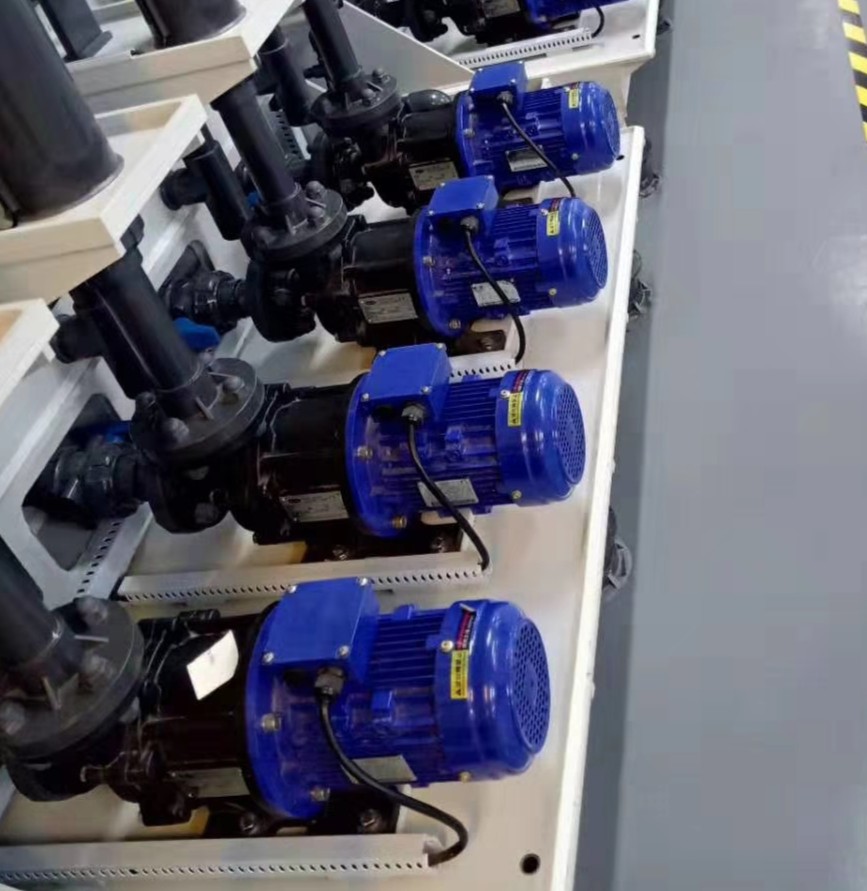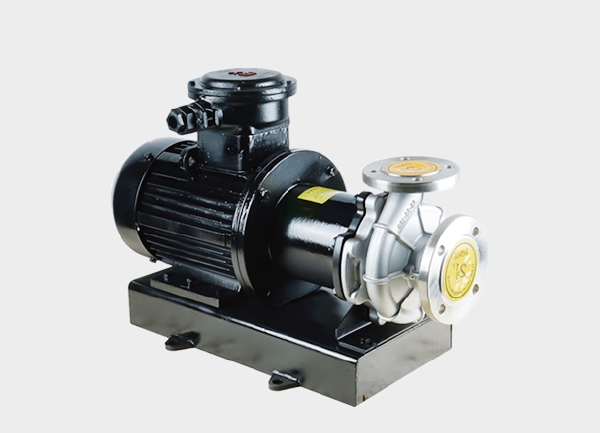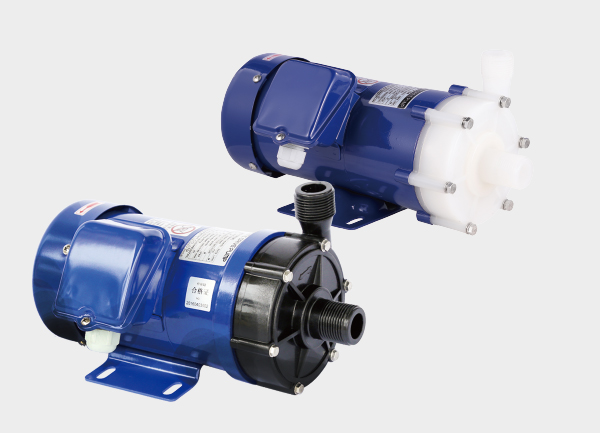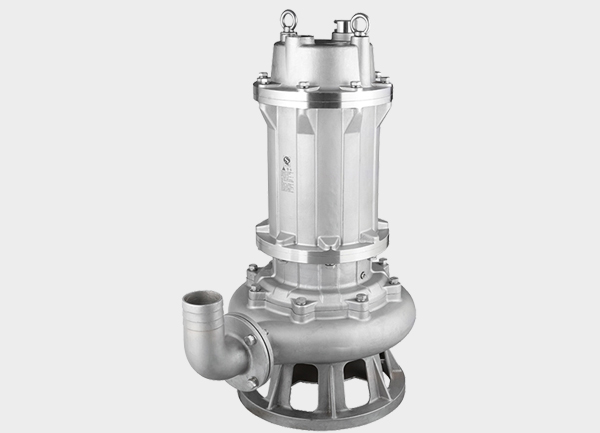Magnetic pumps are widely used in chemical, pharmaceutical, and water treatment industries due to their leak-free design. However, with a wide range of products available on the market, how to choose a magnetic pump that meets your specific needs? This guide breaks down the key steps and core factors to help you make the right decision.
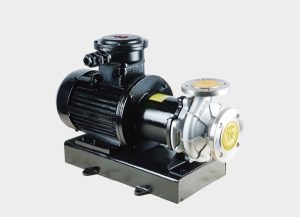
1. Clarify Application Requirements First: The Foundation of Selection
Before choosing a magnetic pump, you must first determine the basic operating conditions, which is crucial for accurate selection:
- Fluid Properties: Confirm whether the fluid is corrosive (e.g., acid, alkali), contains solid particles (particle size, concentration), or has high viscosity (e.g., oil vs. water). For corrosive fluids, select pump bodies made of polytetrafluoroethylene (PTFE) or 316L stainless steel; for particle-containing fluids, match them with wear-resistant impellers.
- Flow Rate & Head: Specify the required fluid delivery volume (unit: m³/h or GPM) and the height the fluid needs to be lifted (unit: meters or feet). Choose a model whose rated flow rate and head match your actual needs to avoid energy waste caused by “over-sizing”.
- Temperature & Pressure: When transporting high-temperature fluids (above 100°C), select magnetic pumps with high-temperature-resistant magnets and seals; high-pressure working conditions require pump bodies with reinforced structures.
2. Focus on Core Performance and Material Selection
Key Performance Indicators (KPIs)
- Efficiency: Prioritize models with high hydraulic efficiency (usually 60%-85%) to reduce long-term energy costs. It is recommended to check the performance curves provided by manufacturers to obtain real operating data.
- Leakage Resistance: Leak-free operation is the greatest advantage of magnetic pumps. Ensure the pump body uses high-quality magnetic couplings—neodymium-iron-boron (NdFeB) magnets have higher strength than ferrite magnets and are more suitable for high-load scenarios.
- Reliability: Choose models with low failure rates. Refer to user reviews or request Mean Time Between Failures (MTBF) data from manufacturers, and give priority to products with stable continuous operation performance.
Material Selection Recommendations
For material selection, different components need to be matched according to actual working conditions:
- Pump Body: Cast iron is suitable for general working conditions; for corrosive fluids, 304 or 316L stainless steel is recommended; for strong acidic fluids, PTFE material is necessary.
- Impeller: Plastic impellers are suitable for low-viscosity fluids; stainless steel impellers work well with corrosive fluids; if the fluid contains abrasive particles, ceramic impellers should be selected to enhance wear resistance.
- Magnetic Coupling: NdFeB magnets are a better choice for high-torque requirements; if the budget is limited and performance requirements are not high, ferrite magnets can meet low-cost needs.
3. Consider Practical Application Factors
- Installation Space: Choose horizontal or vertical magnetic pumps based on on-site space—vertical pumps occupy less floor space and are suitable for compact areas; horizontal pumps are easier to disassemble during maintenance.
- Maintenance Convenience: Prioritize models with detachable pump bodies and easy-to-replace seals, which can reduce maintenance time and costs, especially for continuous production working conditions.
- Manufacturer Qualifications: Select brands with ISO 9001 certification to ensure product quality meets standards; at the same time, pay attention to after-sales services (e.g., 1-year warranty, availability of spare parts) to avoid insufficient support for subsequent operation and maintenance.
4. Avoid Common Selection Mistakes
- Don’t Ignore Fluid Viscosity: Magnetic pumps suitable for water may experience insufficient flow or motor overheating when used to transport high-viscosity fluids (e.g., thick oil). It is necessary to select high-viscosity-specific models accordingly.
- Don’t Blindly Choose Over-Sized or Under-Sized Models: Under-sized models cannot meet delivery requirements, while over-sized models cause energy waste, accelerate pump wear, and shorten service life.
- Don’t Skip Material Compatibility Checks: Ensure the materials of all pump components are compatible with the transported fluid. For example, cast iron pump bodies should not be used for strong acidic fluids, otherwise corrosion and leakage may occur.
By following these steps, you can select a magnetic pump that is efficient, reliable, and cost-effective. If you have special working condition requirements (e.g., high-temperature or explosion-proof environments), it is recommended to contact professional pump manufacturers for customized solutions.

